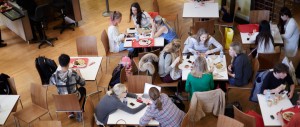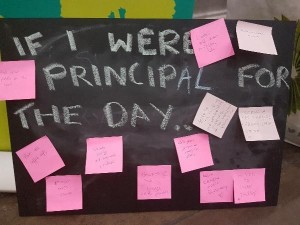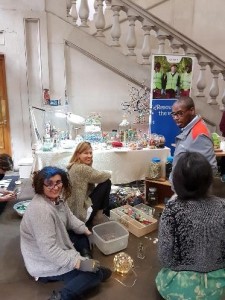This year’s Sustainability Week saw two events organised by the Careers Department to provide students with information about how to get a career in Sustainability. A wide range of speakers, from the private, public and academic sectors, provided their insights to students on what a career in sustainability and corporate social responsibility is like, and how to go about getting a job in these sectors.

As with any job, speakers highlighted the need to gain relevant experience while at university; from volunteering at environment-themed events, working with societies to run events and programmes, and choosing modules that provided knowledge of relevant issues. However, they also stressed that you don’t necessarily need a sustainability related degree (one of the speakers had studied English Literature) to get into the profession. Useful skills such as commercial awareness, knowledge of the law, and financial accounting, all provided important technical knowledge that was relevant to the field of sustainability. The jobs may not always be in the sectors you assume, either; Zoe from Marks and Spencer’s Plan A works on the sustainability of their buildings, since they are an often overlooked part of the sustainability puzzle where good design can significantly reduce energy use and carbon emissions, where as poor design can lock-in bad practise for the decades-long life of buildings.
You can make any job sustainable
One of the stand out pieces of advice the speakers at both events gave was not to limit yourself solely to jobs with ‘Sustainability’ in the title. Although the sector is growing and there are more jobs available, there are also a huge number of people applying for those jobs, making it a difficult sector to get into. Their advice was to find any job in a sector or organisation that you wish to work in, and work to integrate sustainability into that role and influence your colleagues.
This is sound advice, and something King’s itself practises. We have a hard-working team of Sustainability Champions; individuals from different departments around the university who work to make their departments more sustainable, to achieve bronze, silver or gold status. This massively increases the reach and impact of sustainability at King’s, and offers staff the opportunity to bring sustainability into whatever job they are doing.
If you want to find out more, audio recordings of the events are available on KEATS, and there is further information about careers in CSR and Sustainability on the careers website. Our Sustainability team also offers volunteering opportunities to gain experience in the sector, and paid internships each year. Sign up to our newsletter so you know when these opportunities come up.
So if you’re keen to get a career in sustainability and CSR, these events should have provided some valuable information on how to go about doing so. It may not be a straight forward journey, you may not get the job you wanted right away, and you may have to take a position outside the sector and bring sustainability to it to achieve your goal, but that is all part of roller-coaster of careers with purpose. Indeed, if you are ecologically minded, the best place for you may be at the most environmentally destructive companies – they are where change is most needed, and if you have the passion you could make a big impact.






